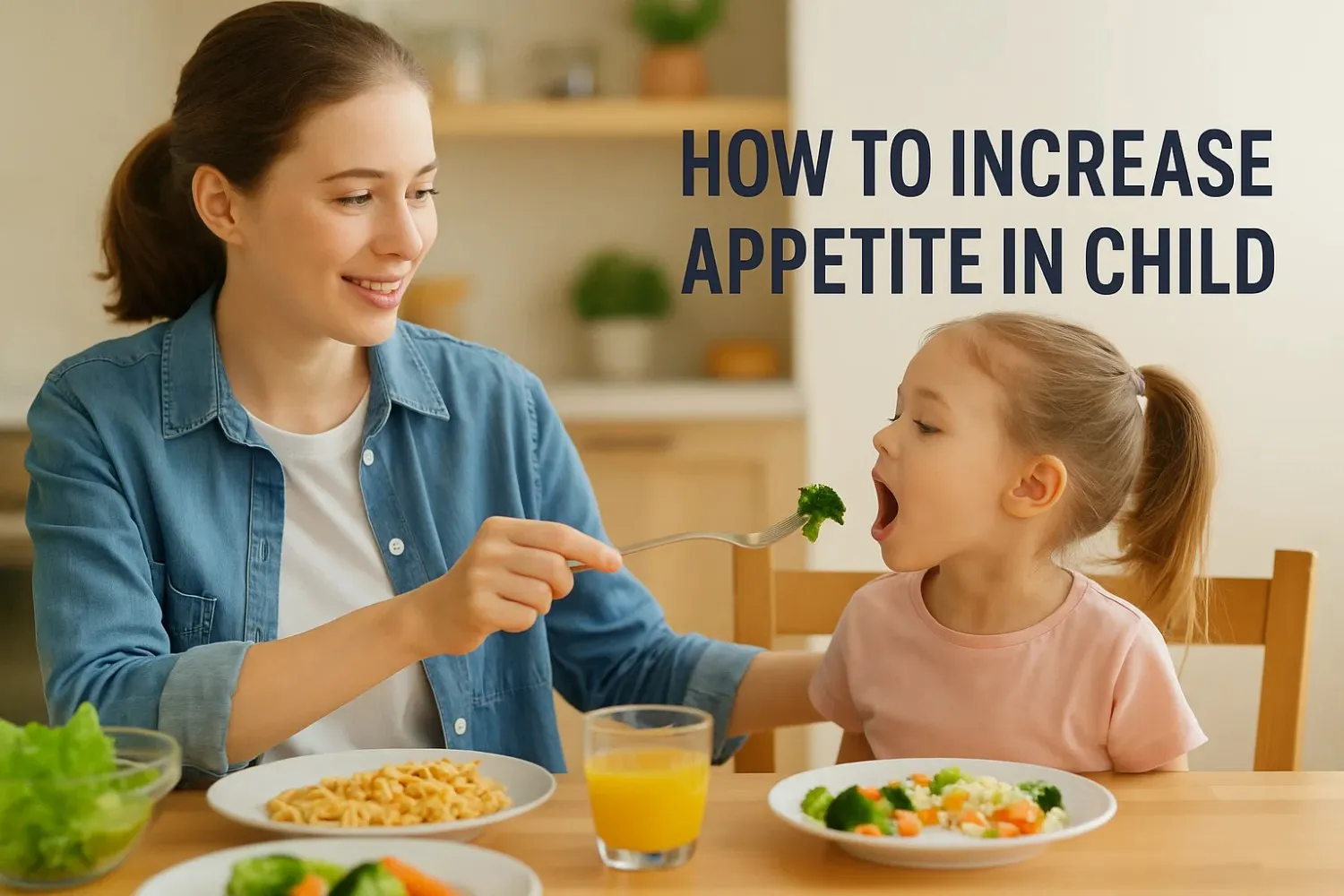Currently Empty: ₹0.00
Baby Brain Food to Boost Brain Development

Written By: Pinky Kharata
Published By: Satya Narayan Pandey
We understand your need to get the best baby brain food as each moment is important for the little ones, particularly when it comes to their brain development. Because their brains are so little, they easily absorb everything they experience. Their meals help them to concentrate, learn from their experiences and keep new information in mind.
Key Nutrients for Baby Brain Development
Babies need specific nutrients to support their rapidly growing brains. These essential nutrients help build brain cells, improve communication between neurons, and promote overall cognitive development. Including these key nutrients in your baby’s diet can boost memory, focus, and learning abilities from an early age.

1. Omega-3 and Omega-6
Omega-3 and Omega-6 are healthy fats that play a big role in baby’s brain growth. These fats help build brain cells and improve memory, focus, and learning. Foods like fatty fish (like salmon), chia seeds, walnuts, and flaxseeds are great sources. For babies just starting solids, can try adding a bit of ground flaxseed to porridge or blend soft-cooked fish into their meals. These fats also support vision and overall development, making them an essential part of your baby’s growing diet.
2. Zinc
Zinc is a powerful mineral that supports brain growth and cognitive function. It helps with the formation of new brain cells and assists in learning and memory processes. Adequate zinc levels can improve attention span and brain signaling. Foods rich in zinc include meat, dairy, nuts, and whole grains.
3. Vitamin B Complex
Vitamin B, including B6, B12, and folate, is essential for brain development. These vitamins help produce neurotransmitters, which are chemicals that allow brain cells to communicate. They also support energy production and protect brain cells from damage. Good sources include eggs, leafy greens, meat, and fortified cereals.
4. Vitamin D
Vitamin D plays an important role in brain development by supporting nerve growth and brain cell function. It also helps regulate mood and cognitive health. Babies can get vitamin D from sunlight exposure and foods like fortified milk, eggs, and fatty fish.
5. Calcium
Calcium isn’t just important for bones, it also supports brain function. It helps transmit signals between brain cells, which is essential for learning and memory. Dairy products, leafy greens, and fortified plant-based milks are excellent sources of calcium for growing babies.
Top 10 Brain Foods for Children
A child’s brain grows rapidly in the early years, and the right foods can make a big difference. Nutritious, brain-boosting meals help improve memory, focus, and learning. Here’s a list of the top 10 brain foods that support healthy development and mental growth in kids.

1. Brain Food: Nuts and Seeds
Nuts and seeds are great for a child’s brain. They have healthy fats and vitamins that help with memory and focus. Eating them regularly can support your child’s learning and thinking skills as they grow. Parents can give almonds, walnuts, pumpkin seeds, chia seeds, or flaxseeds. These nuts and seeds can easily be added to a fruit and nut curd bowl. Just roast some nuts and seeds in ghee and add them to the curd with some honey.
2. Brain Food: Fruit
Fruits are full of vitamins and antioxidants that help your child’s brain stay healthy and sharp. They support memory, focus, and overall brain growth. Fruits also give natural energy, keeping little minds active and ready to learn. Some great brain-boosting fruits are blueberries, bananas, strawberries, and oranges. These can be eaten fresh, blended into smoothies, or mixed with yogurt for a tasty, healthy snack. Parents can make avocado toast with olive oil and a hung curd dressing. Strain curd in a muslin cloth for 7 to 8 hours, then mix with salt, garlic, olive oil, and black pepper. Spread it on whole wheat bread and top with avocado slices.
3. Brain Food: Milk products
Milk and dairy products help in brain development by providing calcium, protein, and B vitamins. These nutrients support memory, concentration, and healthy brain cell growth. They also give lasting energy, which helps kids stay focused and active throughout the day. Good options include milk, cheese, curd (yogurt), and paneer. Serve them as drinks, snacks, or part of meals to keep your child’s brain healthy and strong. Parents can make avocado toast with olive oil and a hung curd dressing. Strain curd in a muslin cloth for 7 to 8 hours, then mix with salt, garlic, olive oil, and black pepper. Spread it on whole wheat bread and top with avocado slices.
4. Brain Food: Vegetables
Vegetables are full of vitamins, minerals, and antioxidants that help the brain grow and stay strong. They support memory, focus, and learning. Colorful veggies like spinach, broccoli, carrots, sweet potatoes, and beetroot keep your child’s brain active and healthy. Add them to soups, parathas, pasta, or stir-fries to make them tasty and fun. Parents can make spinach tortillas at home or buy them from a store. For the filling, chop capsicum, onion, zucchini, carrot, green beans, and sweet corn. Mix with black pepper, salt, lemon juice, hung curd, and coriander. Spread on the tortilla, add veggies, and cook lightly in ghee or butter for crunch.
5. Brain Food: Nut butter
Nut butters are rich in healthy fats, protein, and vitamin E, all of which are great for brain development. They help improve memory, focus, and keep your child feeling full and energized. Peanut butter, almond butter, and cashew butter are good options. Spread them on toast, mix into smoothies, or serve with fruits like apple slices for a tasty, brain-boosting snack. Parents can also give a banana and peanut butter shake with honey.

6. Brain Food: Fish
Fish is a great source of healthy fats and protein, both of which support brain development, memory, and focus. It helps improve attention span and supports overall cognitive growth in young children. Fatty fish like salmon, sardines, and tuna are excellent choices. These are rich in Omega 3 fatty acids, which help build brain cells and support learning. Parents can make a soft salmon or tuna mash with boiled potatoes and a pinch of lemon juice. Spread it on toast or serve with rice for an easy and tasty meal.
7. Brain Food: Eggs
Eggs are packed with protein, choline, and B vitamins, which support brain development, memory, and concentration. They also help with communication between brain cells, which is key for learning. Boiled eggs, scrambled eggs, or omelets are great for kids. Eggs are versatile and can be added to many meals with ease. Parents can make an egg toast by topping whole wheat bread with a boiled egg slice, mashed avocado, and a sprinkle of pepper.
8. Brain Food: Whole Grains
Whole grains provide steady energy to the brain, helping kids stay focused and alert throughout the day. They also contain B vitamins and fiber that support brain function and gut health. Oats, brown rice, whole wheat, and quinoa are great sources. These can be served as porridge, roti, or added to bakes and wraps. Parents can make a kidney bean tortilla wrap with a whole wheat base, mashed beans, and fresh veggies for a filling, brain-boosting snack.
9. Brain Food: Sweet Potato
Sweet potatoes are rich in antioxidants and vitamin A, which support healthy brain cell development. They also provide slow-release energy, keeping kids alert and focused for longer. Baked, boiled, or mashed sweet potatoes work well. They’re naturally sweet, making them appealing to kids of all ages. Parents can make sweet potato fries by slicing and roasting them in ghee or olive oil with a sprinkle of cinnamon or salt.
10. Brain Food: Cereals
Whole grain cereals are a great source of iron, B vitamins, and fiber. They help fuel the brain in the morning and support memory, focus, and mood throughout the day. Parents can also look for cereals made from oats, millet, or whole wheat, with low sugar. Parents can make choco cranberry oatmeal using rolled oats, milk, a little cocoa powder, fruits, nuts, and chopped cranberries for a yummy breakfast treat.
Conclusion
Giving the right foods early on can support a baby’s brain development in amazing ways. When a parent includes nutrients like Omega 3, Omega 6, and Zinc, Vitamin B Complex, Vitamin D, and Calcium, they help boost memory, learning, and growth. Every small choice and every bite can help build a strong foundation for the baby’s healthy and happy future.
FAQs: Baby Brain Food: Foods to Boost Brain Development
The right nutrition in early years can support brain growth, memory, and learning. Here are some simple, helpful answers to common questions about foods and nutrients that can boost your baby’s brain development.
Q1: What Fruit Is Good For Baby Brain?
Ans: Blueberries, avocados, and bananas are excellent for brain health. They’re rich in antioxidants, healthy fats, and essential nutrients that support memory and overall brain development in babies.
Q2: How Can I Boost My Child Memory?
Ans: Parents can give foods rich in omega-3s, like fish and flaxseeds. Create a routine with plenty of sleep and fun memory games to strengthen focus, recall, and attention span.
Q3: What Vitamin Is Good For Kids’ Brains?
Ans: Vitamin B12, D, and Omega-3 fatty acids are key for brain development. They help with focus, memory, and overall cognitive function in growing children.







